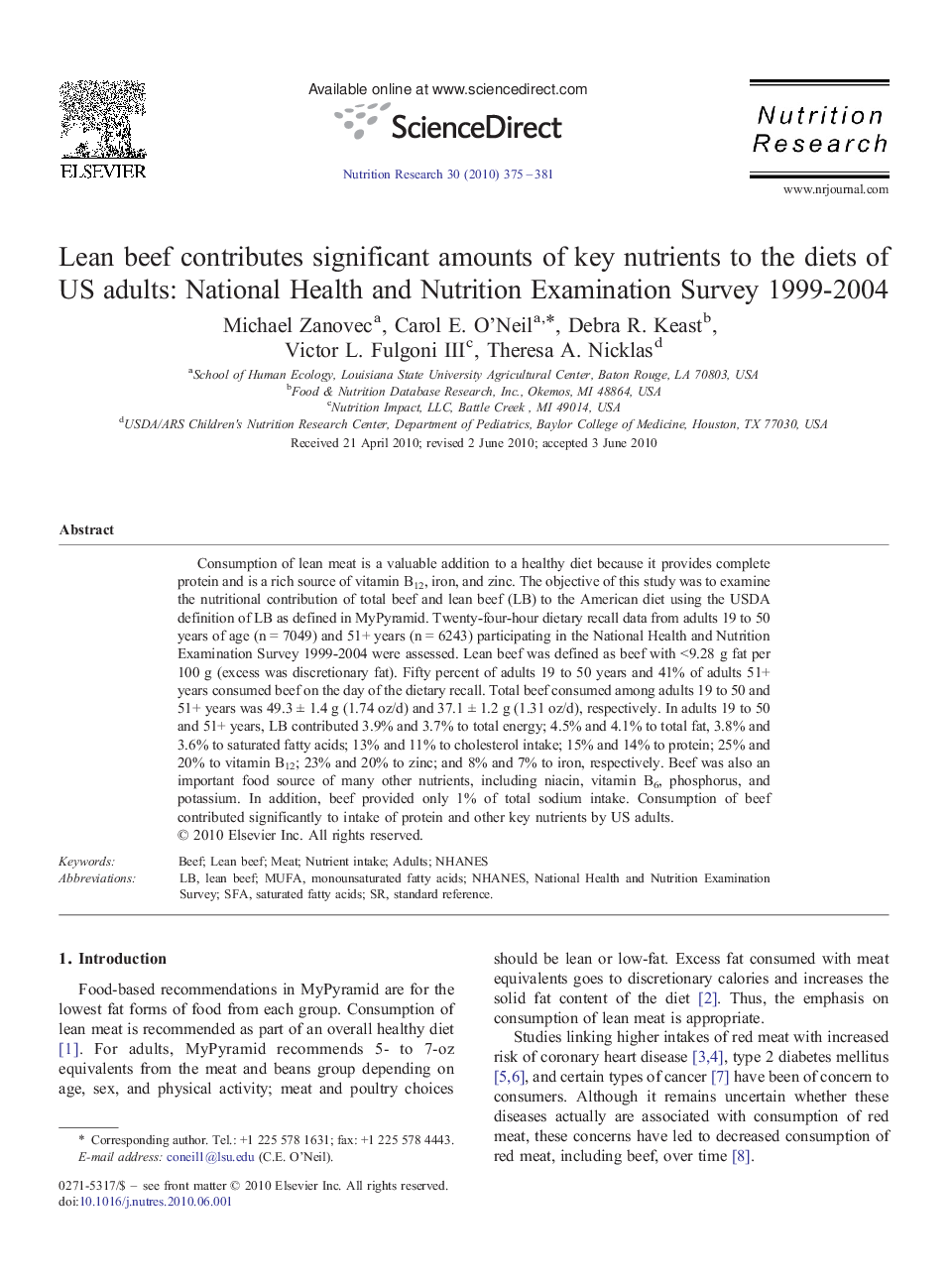| Article ID | Journal | Published Year | Pages | File Type |
|---|---|---|---|---|
| 2809429 | Nutrition Research | 2010 | 7 Pages |
Consumption of lean meat is a valuable addition to a healthy diet because it provides complete protein and is a rich source of vitamin B12, iron, and zinc. The objective of this study was to examine the nutritional contribution of total beef and lean beef (LB) to the American diet using the USDA definition of LB as defined in MyPyramid. Twenty-four-hour dietary recall data from adults 19 to 50 years of age (n = 7049) and 51+ years (n = 6243) participating in the National Health and Nutrition Examination Survey 1999-2004 were assessed. Lean beef was defined as beef with <9.28 g fat per 100 g (excess was discretionary fat). Fifty percent of adults 19 to 50 years and 41% of adults 51+ years consumed beef on the day of the dietary recall. Total beef consumed among adults 19 to 50 and 51+ years was 49.3 ± 1.4 g (1.74 oz/d) and 37.1 ± 1.2 g (1.31 oz/d), respectively. In adults 19 to 50 and 51+ years, LB contributed 3.9% and 3.7% to total energy; 4.5% and 4.1% to total fat, 3.8% and 3.6% to saturated fatty acids; 13% and 11% to cholesterol intake; 15% and 14% to protein; 25% and 20% to vitamin B12; 23% and 20% to zinc; and 8% and 7% to iron, respectively. Beef was also an important food source of many other nutrients, including niacin, vitamin B6, phosphorus, and potassium. In addition, beef provided only 1% of total sodium intake. Consumption of beef contributed significantly to intake of protein and other key nutrients by US adults.
